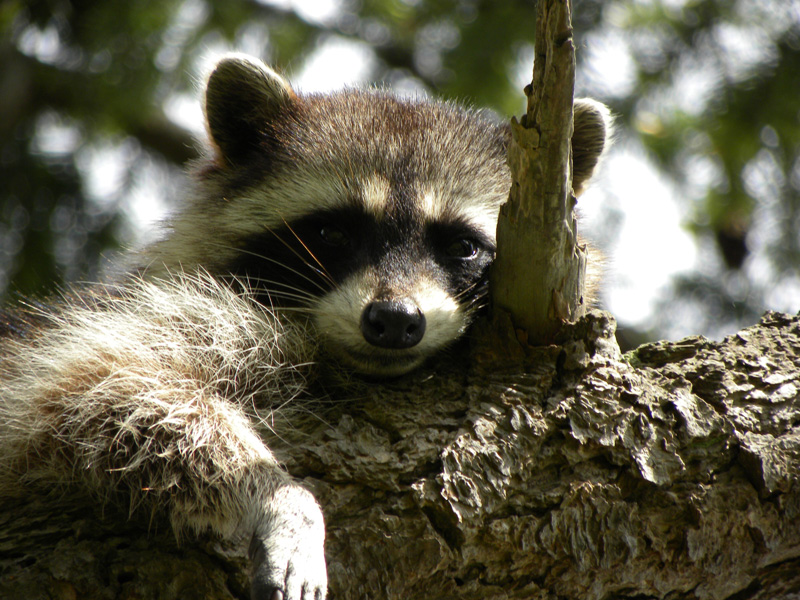What raccoons can teach us about the value of fear
- Suzanne Ahearne

It’s long been known that animals living without fear of predation will thrive and reproduce faster. Think rabbits and deer. What hadn’t been demonstrated is that fear of large carnivores—or lack of it—has ripple effects on the whole web of life.
BC’s Gulf Islands—where the formerly nocturnal raccoon populations now forage unabashedly day and night in intertidal zones—was the site of a creative experiment led by Justin Suraci, a UVic PhD candidate in biology, published this week in Nature Communications.
The study, done with co-researchers Liana Zanette (Western University) and Larry Dill (Simon Fraser University), with support of the Raincoast Conservation Foundation, showed that fear itself has a positive impact on ecosystem health.
FEARLESS from Hakai Magazine on Vimeo.
Raccoons on the Gulf Islands are devastating populations of crabs and fish in the intertidal zone, and nesting songbirds on land. Since the elimination of wolves, bears and cougars from the Islands almost a century ago, dogs are only animal these raccoons recognize as a threat.
To investigate whether the fear of becoming prey would slow down the pace of their foraging, Suraci and colleagues set up speakers along tracts of shoreline for a month at a time and intermittently played recordings of barking dogs.
They found that raccoons reduced their foraging time by 66 per cent. In that period, researchers recorded a 61 percent increase in the abundance of red rock crab and an 81 per cent increase in intertidal fish—a prime target of raccoons.
The study points to something bigger. “Humans have done an excellent job of wiping out large carnivores across the globe and we’re only starting to understand what the ecological consequences of that are,” says Suraci. “One of the major consequences is that when you take away the large carnivores, you get outbreaks of the species that they eat—herbivores like deer and smaller predators like raccoons. So, understanding the ways in which these large carnivores historically kept their prey in check was very important to restoring these ecosystems.”
“What we’ve shown is that we have to consider the behavioural interactions top predators have with their prey and not just the actual predation—the killing and consumption—when we’re thinking about how to restore ecosystems from which large carnivores have been lost,” says Suraci.
Read the full study in Nature Communications.


